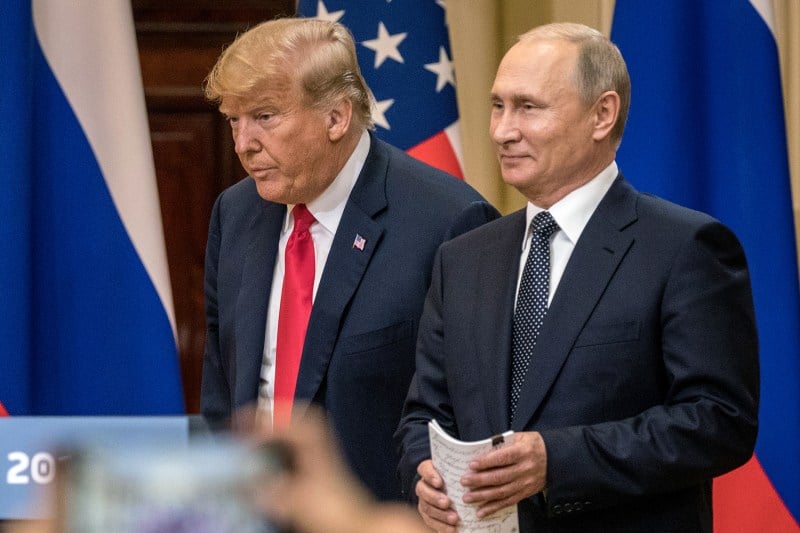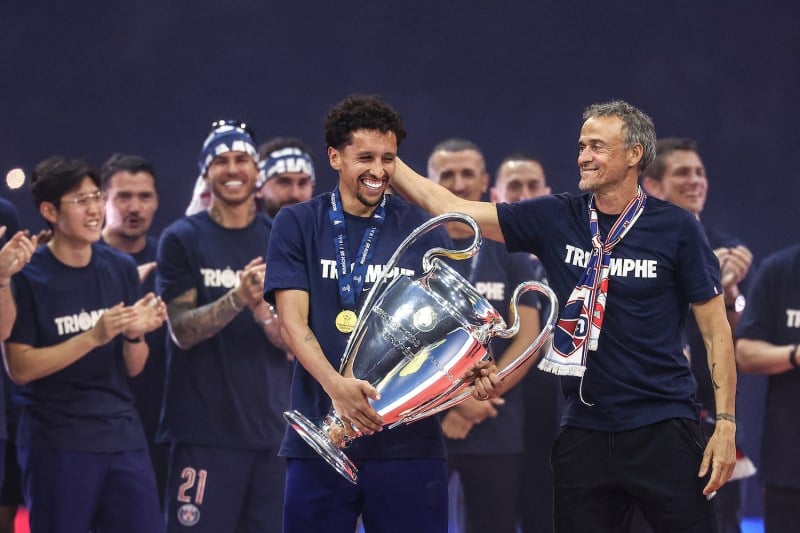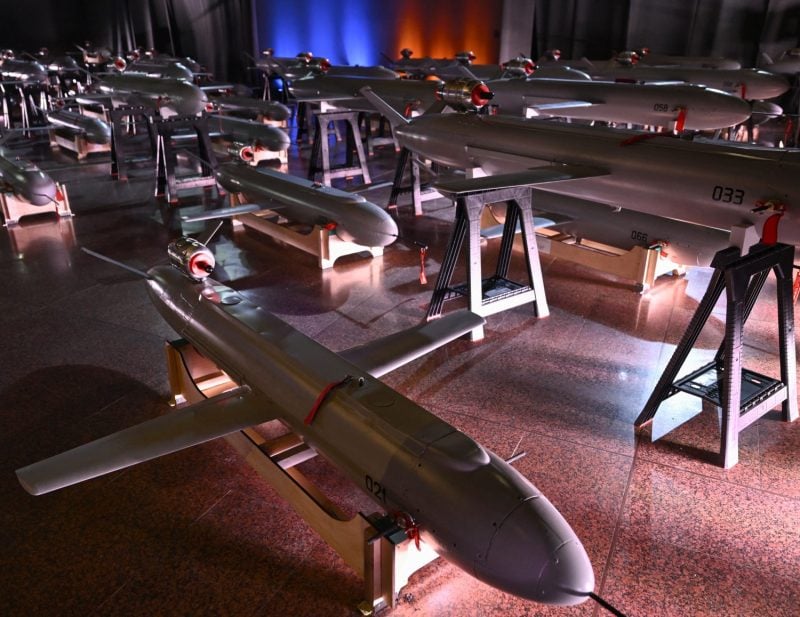Jubilation in Moscow Over Trump’s Gifts to Putin

Jubilation in Moscow Over Trump’s Gifts to Putin
To the Kremlin and its supporters, fortune has finally turned Russia’s way.
U.S. President Donald Trump and Russian President Vladimir Putin hold a press conference after their summit in Helsinki, Finland, on July 16, 2018. Chris McGrath/Getty Images
In Moscow, it was like Christmas, Easter, and New Year’s all rolled into one. In a gushing readout of his call with Russian President Vladimir Putin, U.S. President Donald Trump announced the immediate start of negotiations about the future of Ukraine—without preconditions or other countries at the table. Earlier, U.S. Defense Secretary Pete Hegseth ruled out NATO membership for Ukraine and any chance of a return to the country’s internationally recognized borders, fulfilling two key Russian conditions. On the same day, the U.S. Senate confirmed Tulsi Gabbard, whose talking points often align with Kremlin propaganda, as the next director of national intelligence.
The Kremlin and its media machine have not been this ecstatic since the launch of Putin’s “special military operation” on Feb. 24, 2022, when for a day or two it actually looked as if Russian forces would overrun Ukraine without much of a fight. “Trump is now doing our job for us” by “sawing” Europe into pieces, Russian talk show host Evgeny Popov told his viewers. His giddy, smiling co-host, Olga Skabeeva, described the turn of events as having been “unimaginable” and “unthinkable” before. On another show, the pundit Sergey Mikheev was elated by another Hegseth remark that was widely interpreted to mean that Washington was reconsidering its security commitment to Europe. Mikheev concluded that Russia was finally free to strike Brussels, London, and Paris. Some pundits basked in the fact that it was Trump who reached out to Putin. “It’s as if Julius Ceasar himself telephoned a barbarian,” Mosfilm studio chief Karen Shakhnazarov commented on another show.
In Moscow, it was like Christmas, Easter, and New Year’s all rolled into one. In a gushing readout of his call with Russian President Vladimir Putin, U.S. President Donald Trump announced the immediate start of negotiations about the future of Ukraine—without preconditions or other countries at the table. Earlier, U.S. Defense Secretary Pete Hegseth ruled out NATO membership for Ukraine and any chance of a return to the country’s internationally recognized borders, fulfilling two key Russian conditions. On the same day, the U.S. Senate confirmed Tulsi Gabbard, whose talking points often align with Kremlin propaganda, as the next director of national intelligence.
The Kremlin and its media machine have not been this ecstatic since the launch of Putin’s “special military operation” on Feb. 24, 2022, when for a day or two it actually looked as if Russian forces would overrun Ukraine without much of a fight. “Trump is now doing our job for us” by “sawing” Europe into pieces, Russian talk show host Evgeny Popov told his viewers. His giddy, smiling co-host, Olga Skabeeva, described the turn of events as having been “unimaginable” and “unthinkable” before. On another show, the pundit Sergey Mikheev was elated by another Hegseth remark that was widely interpreted to mean that Washington was reconsidering its security commitment to Europe. Mikheev concluded that Russia was finally free to strike Brussels, London, and Paris. Some pundits basked in the fact that it was Trump who reached out to Putin. “It’s as if Julius Ceasar himself telephoned a barbarian,” Mosfilm studio chief Karen Shakhnazarov commented on another show.
Pundits, bloggers, and officials across Moscow echoed the triumphalism. From their vantage point, fortune has finally turned Russia’s way following three years of humiliating setbacks, including Ukraine’s surprise conquest of a slice of Russia last summer. Since Wednesday, Ukraine looks abandoned by its allies, Europe is as effete and paralyzed as ever, and the Americans are handing Russia a series of gifts by dismantling their alliances and making massive concessions before negotiations even begin. Among Trump’s major appointments, there is not a single official with expert knowledge or experience in the region—not even Keith Kellogg, his special representative for Ukraine and Russia. There is no doubt that the Kremlin will exploit this institutional ignorance to its benefit.
But what is especially delightful to Putin and his cronies is the humiliating exclusion of Ukraine and its European allies from the deal that Trump is eager to personally strike with Putin. Aleksandr Kots, a pro-Putin war reporter, is skeptical that Trump is really Russia’s friend, but for now he celebrates the fact that there are “two men deciding” Ukraine’s fate while Europe is reduced to providing “backup vocals” in the upcoming negotiations. Trump’s own former national security advisor, John Bolton, perfectly captured the exuberance on CNN: “They’re drinking vodka straight out of the bottle in the Kremlin tonight,” he said shortly after the Trump-Putin call.
The Kremlin’s media machine is rightfully celebrating, given how much of what Moscow wants it has just gotten. But underneath the giddiness, much skepticism remains. Russian officials have been burned by Trump’s unpredictability before, and they still seem less exuberant today than in 2016. Then, Trump’s surprise election victory triggered near-fanatical enthusiasm in Moscow, only to end in disappointment. Not only did Trump fail to roll back the Obama administration’s sanctions on Russia, but he actually signed an additional sanctions package soon after taking office.
The current exuberant mood also hides some fundamental obstacles to any negotiated end to the war. Even as Trump meets some of Putin’s preconditions, the Kremlin’s uncompromising rhetoric doesn’t leave much wiggle room elsewhere. Putin has not backed down an inch from his demands that Ukraine surrender even those territories that Russian forces never managed to occupy. Naturally, this is completely unacceptable to Ukraine, setting the talks up for failure from the start.
Russia also doesn’t have a lot of military leverage to dictate its terms. The widespread narrative that Russia is relentlessly advancing with time on its side collapses when you look at the minuscule gains and tremendous toll in Russian lives and equipment. The Russian army is decimated; of its prewar stock of more than 11,000 tanks, for example, barely 3,000 remain—many of them rusted, turretless husks. Seven months after Ukraine occupied parts of Russia’s Kursk region, Russian and North Korean forces still have not managed to retake them; last week, it was the Ukrainians who were advancing there again. Meanwhile, Kremlin spokesperson Dmitry Peskov has categorically ruled out territorial swaps—occupied Russia for parts of occupied Ukraine—which further complicates any cease-fire deal.
That said, Ukraine is also exhausted, and neither side has the momentum for a decisive victory. Furthermore, none of Russia’s allies has managed to change the war’s course in Russia’s favor—neither Iran with its missiles and drones nor North Korea with its troops, artillery, and ammunition. Russia’s only remaining hope is that Trump abandons Ukraine, but the Kremlin has no real way to steer his whims and caprices other than by massaging his fragile ego. In this sense, Moscow is as dependent on Trump’s unpredictable decisions as Kyiv. Even as the Kremlin’s media lackeys celebrate, Russian Telegram channels reflect the more sober reality. There, commentators oscillate between euphoria and despair, unsure whether Trump’s next social media post will hand them victory or abandon their cause.
In the end, it will boil down to whoever offers Trump the most convincing flattery or clearest benefit. Putin, as a former KGB handler, quickly figured this out; instead of lashing out at Trump’s earlier threats of pressuring Russia, Putin chose to appeal to Trump’s transparent private obsessions, such as his claim that he won the 2020 U.S. presidential election. Ukraine, in turn, seems to be biding time in hopes that Putin’s inflexible demands and combative nature finally exasperate Trump.
It’s a calculated gamble on Ukraine’s part—and likely its best option. Russia’s resources, while enormous, are not infinite. Putin doesn’t have a lot of time to wait for Ukraine to collapse or Western support to wither away. His threats and red lines have consistently turned out to be hollow. Since the failure of the initial invasion plan, his theory of victory has always revolved around dividing the West and undermining its support for Ukraine. Trump’s return to the White House was always part of that strategy. It’s early days, but we may soon see whether Putin’s strategy pays off—and this week’s champagne toasts in Moscow were warranted.
This post is part of FP’s ongoing coverage of the Trump administration. Follow along here.
Alexey Kovalev is an independent journalist and former investigations editor at Meduza who left Russia in 2022. X: @Alexey__Kovalev
More from Foreign Policy
-

Russian President Vladimir Putin looks on during a press conference after meeting with French President in Moscow, on February 7, 2022. The Domino Theory Is Coming for Putin
A series of setbacks for Russia is only gaining momentum.
-

The container ship Gunde Maersk sits docked at the Port of Oakland on June 24, 2024 in Oakland, California. How Denmark Can Hit Back Against Trump on Greenland
The White House is threatening a close ally with a trade war or worse—but Copenhagen has leverage that could inflict instant pain on the U.S. economy.
-

Donald Trump speaks during an event commemorating the 400th Anniversary of the First Representative Legislative Assembly in Jamestown, Virginia on July 30, 2019. This Could Be ‘Peak Trump’
His return to power has been impressive—but the hard work is about to begin.
-

US Secretary of State Marco Rubio greets employees at the State Department in Washington, DC, on January 21, 2025. The National Security Establishment Needs Working-Class Americans
President Trump has an opportunity to unleash underutilized talent in tackling dangers at home and abroad.










Join the Conversation
Commenting on this and other recent articles is just one benefit of a Foreign Policy subscription.
Already a subscriber?
.
Subscribe
Subscribe
View Comments
Join the Conversation
Join the conversation on this and other recent Foreign Policy articles when you subscribe now.
Subscribe
Subscribe
Not your account?
View Comments
Join the Conversation
Please follow our comment guidelines, stay on topic, and be civil, courteous, and respectful of others’ beliefs.
Change your username |
Log out
Change your username:
CANCEL
Confirm your username to get started.
The default username below has been generated using the first name and last initial on your FP subscriber account. Usernames may be updated at any time and must not contain inappropriate or offensive language.